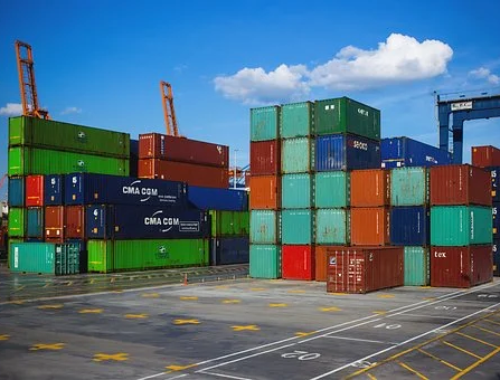Japanese firms shift production from China to avoid trade war
Japanese businesses are moving production from China to minimize the impact from the escalating trade war between Washington and Beijing, while Tokyo is trying to avoid being embroiled in a similar U.S. trade conflict.
Japanese businesses are moving production from China to minimize the impact from the escalating trade war between Washington and Beijing, while Tokyo is trying to avoid being embroiled in a similar U.S. trade conflict.
A number of Japanese companies had already planned to relocate their bases from China to Japan or elsewhere after U.S. tariffs on $34 billion (3.81 trillion yen) worth of Chinese goods took effect on July 6, followed by $16 billion worth of Chinese imports subject to the tariff on Aug. 23.
Those U.S. tariffs were centered on high-tech products.
In the face of the widening U.S. action against China, chemical giant Asahi Kasei Corp. moved up its schedule to consolidate in Japan its production of resin for automotive parts for the U.S. market.
By the end of August, the company had halted resin output in China.
In August, Mitsubishi Electric Corp. began transferring manufacturing of laser beam machines destined for the United States to its factory in Nagoya after the machines built in China became the target of the tariffs.
Komatsu Ltd. is shifting production of hydraulic shovel parts to Japan and the United States. An estimate showed that the company would suffer an annual loss of 4 billion yen from the higher tariffs if it continued manufacturing the parts in China.
Hitachi Construction Machinery Co., whose exports of hydraulic shovels to the Asian and North American markets have been robust, posted record high sales for the April-June period.
But the company decided not to revise its projections for the full fiscal year because of uncertainties in the coming months.
“We are nervously watching the repercussions (of the trade war) on the global market,” a senior official at Hitachi Construction Machinery said.
Those concerns grew after the United States on Sept. 17 announced it would slap a 10-percent tariff on about $200 billion of Chinese goods starting on Sept. 24, including sundry products, clothing and furniture.
China retaliated by saying it would impose tariffs of up to 10 percent on $60 billion of U.S. goods.
With neither side appearing willing to back down, more Japanese companies will likely act to avert fallout from a full-blown trade war between the world’s two largest economies.
In the end, Japanese consumers are expected to pay the price for the trade war.
“The impact will be felt by consumers in the near future,” Kuniharu Nakamura, chairman of the Japan Foreign Trade Council who is also chairman of trading house Sumitomo Corp., said on Sept. 18.
Japan may soon find itself mired in a trade conflict with the United States.
“If we don’t make a deal with Japan, Japan knows it’s a big deal,” U.S. President Donald Trump has said.
Tokyo and Washington are expected to hold “free, fair and reciprocal” trade talks later this month while Prime Minister Shinzo Abe is scheduled to discuss trade and other subjects with Trump in the United States.
Japanese government officials said they have no idea how talks will turn out with the Trump administration.
“It is hard to predict since we have had few prior negotiations,” an official said.
(Source: asahi.com)
-

"2021 China Internet Home Improvement Consumption Trend White Paper" released
-

Sales of soft furniture such as sofas and beds in China doubled in August
-

China' s furniture retail sales in August was 13.7 billion yuan, a year-on-year increase of 6.7%
-

From January to August, China' s furniture exports reached 305.43 billion yuan, an increase of 31%

 沪公网安备31010402003309号
沪公网安备31010402003309号



